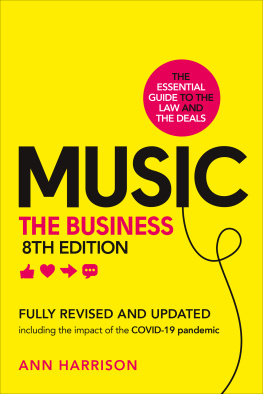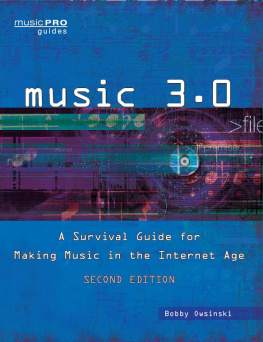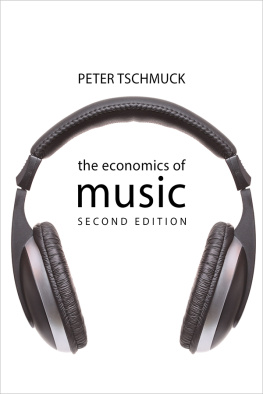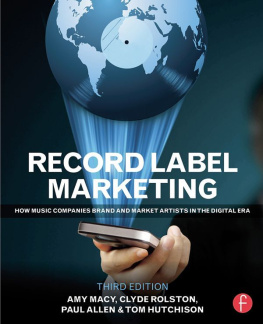
EBURY
UK | USA | Canada | Ireland | Australia
New Zealand | India | South Africa
Ebury is part of the Penguin Random House group of companies whose addresses can be found at global.penguinrandomhouse.com.

First published in the United Kingdom by Virgin Books in 2000
This edition published 2021
Copyright Ann Harrison 2000, 2003, 2005, 2008, 2011, 2014, 2017, 2021
The moral right of the author has been asserted
Cover design by ClarkevanMeurs Design
ISBN: 978-0-753-55899-7
The law in this book is correct to the best of my knowledge as of 30 March 2021, but the views expressed are mine alone. Although I have tried to give practical examples throughout the book, everyones circumstances are different, as are the facts of every case. The book is not a substitute for independent legal advice given to you personally. No liability can be accepted by me or Virgin Books for anything done in reliance on the matters referred to in this book.
Ann Harrison
This ebook is copyright material and must not be copied, reproduced, transferred, distributed, leased, licensed or publicly performed or used in any way except as specifically permitted in writing by the publishers, as allowed under the terms and conditions under which it was purchased or as strictly permitted by applicable copyright law. Any unauthorized distribution or use of this text may be a direct infringement of the authors and publishers rights and those responsible may be liable in law accordingly.
Introduction
When I started work in the music business I had very little idea how it worked. Record and publishing companies were a mystery to me. I looked for books that might help me but there werent many around. Those were mostly out of date or applied to the US and not to the UK music business. I had to learn from my colleagues as I went along. I was lucky in that they were very knowledgeable and very generous with their time.
Now there are many sources of information available on the UK music business and there are many good media and law courses available to give you a head start. To accompany these, I felt we needed an easy-to-read guide to how the business works from a legal viewpoint one that explains what a publisher does, for example, what copyright is and what are the potential traps if you want to release your own material. Many of the books on the music business are written from the US perspective. I wanted to write one based on the UK music industry which could be read as a road map through the industry. Where Ive used technical expressions, I have tried to give a non-technical explanation alongside. This book is not, however, intended to be a substitute for legal textbooks on copyright, other intellectual property rights or contract. There are many good examples of these sorts of books around.
The music business is a dynamic one and each new edition involves a reworking of most of the chapters. This latest edition was no different. I began writing it during the pandemic at the end of a year which without any doubt was the most challenging period for the music industry (and of course all other aspects of society) since the start of the modern music business in the 1950s and 60s. Every aspect of the business had to adapt and some, like the live sector was initially paralysed with many people being made redundant or furloughed. When some live work became possible around three to four months into the pandemic, we saw an extraordinary shift or pivot in order to give people an as live experience in their own homes. on Live addresses these changes in more detail.
As a consequence of the collapse of the live business secondary ticketing, which had been a big issue in the last edition, faded into the background. Although early in 2021 ticket resale company Viagogo was forced to sell off the non-North American parts of the StubHub business it had made a deal to acquire for an estimated $4 billion in 2019 after a referral of the proposed acquisition to the Competition and Markets Authority. Between them these two companies had 95% of the secondary ticket market in the UK and CMA ruled that if Viagogo wanted to continue with the purchase of StubHub in order to expand the business in North America, the other parts of the StubHub operation had to be sold off.
The shift from ownership to consumption of music on demand via streaming services also served to focus debate on the liability of online service providers for the content of websites and the proper remuneration of songwriters from streaming services with a report on a Department for Digital, Culture, Media and Sport investigation imminent as I write.
In many respects though technology saved the music industry during the pandemic as it did many other areas of commerce. Law firms who had previously insisted on all staff working from the office suddenly had to manage teams of people working remotely. Teams, Zoom and Google Meet became our go to, and remote signature of contracts became the norm. Of course, these new means of doing business brought with them unique challenges: motivation, teamwork, training, supervision and compliance all had to adapt rapidly.
Marketing changed significantly records were still released, indeed some companies like Warners made a virtue of this but the question then was how to promote these records without a live tour or summer festivals? Innovative solutions were found as outlined in the revised dealing with social media, marketing and distribution. Making of adverts and videos was impossible for a time, with lack of insurance being a bar to filming taking place. So how did the brands get their message and their product to the consumer? They went to Instagram, to YouTube and to TikTok and branding and sponsorship deals exploded. The chapters on branding, sponsorship and endorsement have therefore also been re-written to reflect this shift.
Even before the pandemic and restrictions on our personal freedoms we were seeing significant changes in how recording artists got their music to their fans online the DIY movement continued at a pace and throughout lockdown. Artists recorded whole albums remotely. In the same context we are starting to see some subtle changes in how an artist puts together their team. The role of the lawyer as deal breaker has expanded and the role of the manager is evolving in some cases to one of business partner in DIY ventures.
The chapters on publishing, sampling and plagiarism have been re-written as a result of some interesting new cases and legal developments particularly in the US. dealing with the usually arcane world of collection societies has also undergone significant changes with new players on the scene. In truth there is barely a chapter which hasnt seen significant reworking.
Wherever possible, I have tried to illustrate points with practical examples. I must add a health warning that the examples produced and the guidelines given are mine alone and others may not agree or may have had different experiences.
Weve all been fascinated by newspaper reports of artists in court over disputes with their ex-managers, record companies or even other members of the band. Are these reports accurate? Do these cases have any long-term effect? Do they matter? The facts of some of the more important cases have been highlighted, details given of what was decided and the effects of these decisions on the music business. Ive included several new cases throughout this edition, particularly in the area of sampling and claims of copyright infringement.
Next page







